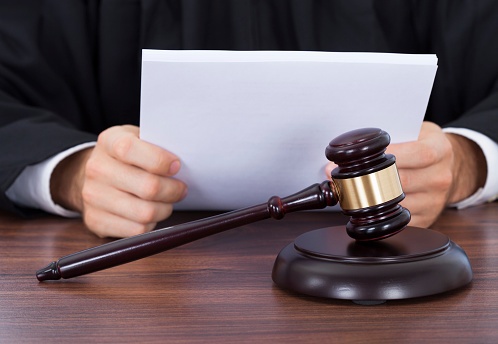Scura, Wigfield, Heyer, Stevens & Cammarota Blog
- Blog
Suggestions to Witness at a Deposition Trial
Your fundamental and continuing obligation as a witness is to tell the truth. There can be no departure from that rule. However, the following are guidelines that may generally assist you in maximizing your effectiveness as a witness. They are not intended as hard and fast rules but, rather, are provided for your consideration and assistance.

(1) Listen to the question, no matter by whom it is asked, and make sure that you understand the question. If you do not understand the question simply ask the questioner to repeat it, rephrase it or put it into language which is clear to you. (Never answer a question with another question, such as, “ Do you mean, etc., etc., etc.”).
(2) Assuming that you understand the question and that it makes perfect sense to you, you should then consider your answer. Do not say the first thing that comes into your mind but reflect upon the proposed response.
(3) Your answer should be direct and responsive to the question asked. Do not equivocate or be evasive. Your answer should not contain more information than the question requests. Be as short as possible unless your attorney advises you of certain areas, he or she wants you to elaborate upon.
(4) If a question deals in terms of dates, times, distances, or amounts, unless you are absolutely certain about the specifics of an answer be sure to phrase your answer in terms of "to the best of my recollection,” or “as well as I can determine," or "it seems to me," or "I approximate it as," etc., etc. The reason for this is that if you have given an answer which is erroneous and which can be demonstrated as erroneous by the other side it will adversely affect your credibility as a witness. If, however, you have given yourself some room, the impact of contradictory testimony may not be as great. Understand that it is perfectly proper for you to estimate. Never guess at an answer. If you are in a position where you have to guess, tell the questioner that, and state that you cannot answer the question.
(5) If you have given an answer which you believe to be truthful stick with that answer. No matter how many times the question may be asked or no matter whether the questioner would intimate by the tone of his voice that if you give the same answer again, you are either foolish or a liar, do not change the answer.
(6) If, you on the other hand, you feel that you have given an answer which is incorrect and you desire to correct it be certain to do so at that first opportunity. If you are in Court on the stand, you may want to turn to the Judge and simply say to him/her, “Judge, in connection with a prior question, I gave an answer which I believe is incorrect and I would like to correct it, may I do so now?” Normally the Judge will permit you to do it without any question. If at depositions, the first time that you realize you have given an incorrect answer, speak up and your attorney will normally give you the opportunity that will permit you to correct the answer on the record.
(7) Take each question in stride and if you come across a question to which you think a truthful answer will damage your case do not try to avoid the answer by being evasive, referring to something else or some other diversionary tactic. If the lawyer has any experience whatsoever, he will simply press the question until he gets an answer. By doing this you have built up unnecessary emphasis on that unfavorable question and the answer.
(8) Only answer what is asked. You should pause and think about each question and reflect prior to answering. In addition, if there is a pause in questioning, keep silent and wait for the next question.
Sometimes attorneys purposely pause hoping that a witness will volunteer information without a question being asked. Finally, wait until the questioning attorney asks his full question before answering. Stated otherwise, do not try to anticipate what will be asked and answer before the full question is asked.
(9) Never fight or argue with the questioning attorney. Just give straight forward and simple answers to the questions.
(10) Virtual Remote & Video Depositions. Today many depositions are being taken virtually by Zoom or other similar applications. You should make sure you have an adequate computer, with a decent camera and audio. If you do not have one, we will provide one for you. If you are not tech savvy, we should spend time before hand setting you up and getting you familiar with the procedure. Below are some additional guidelines for you as a witness to consider:
- Dress appropriately. Dress professionally but do not over dress. The best choice is business casual for the deposition. Pastel colors (think light blue) with minimal patterns are the best choice. Also try to dress comfortably as your deposition may take a while.
- Breaks. If you need a break take it. You will be doing a lot of talking and you want to make sure you are hydrating and drinking plenty of water. Water also helps your energy and brain.
- Focus not fidget. Try to keep focused and not fidget too much. The camera is focused on you primarily and you do not want to look evasive when being questioned. Cell phones, laptops and tablets should be turned off to ensure the best audio quality.
- Be Careful of posture. Sit up straight and try to be mindful of your body language. That being said, try to relax and be yourself.
- Non-verbal body language is important. Arms crossed and shoulders hunched convey doubt or defensiveness, even when no one is talking. Try to sit up in the chair (no leaning back) and keep both feet on the floor.
- Facial expressions. You have to watch your facial expressions. Please stay away from smirking, eye rolling, frowns or furrowed brows. Look straight at the camera on your computer.
- Documents. Documents, photos and other evidence are now shown to you via a screen share. We have to make sure your computer is set up properly to view this evidence. Please also do not answer any questions until your attorney has the opportunity to view the document or other evidence first. The opposing attorney has to show your attorney first any evidence shown to you for questioning.
- WIFI Connectivity. The best connectivity is important. We suggest that you connect to an internet router directly to maintain good connectivity. If you do not have that option, please make all efforts to come to our office to conduct the deposition.
- Our Office. If possible, we prefer to have you come into our office for the virtual deposition. This way we can help you and maintain some control over the process.

If, after you have read the foregoing suggestions, you have any question about them or do not understand any part of them, be sure to discuss the matter with your attorney. Candor, simplicity, pleasant manner and appearance are some of the hallmarks of a successful witness. But, above all, be honest and be yourself.
Scura, Wigfield, Heyer, Stevens & Cammarota, LLP

John J. Scura III
John fights hard for his clients and tries to educate them so they understand what is going on with their particular legal problem. John has been Certified by The Supreme Court of New Jersey as a Civil Trial Attorney. Whether it is a personal injury case, bankruptcy case, litigation case or other type of matter, John wants his clients to participate in the decision making process toward solving their problem in the best way possible.
Share Article
Need Help? Contact Us Today!





Lists by Topic
- Bankruptcy (323)
- Personal Injury (95)
- Chapter 13 (52)
- Chapter 7 (51)
- Debt Management (50)
- Foreclosure (47)
- Accident (32)
- Car Accident (27)
- Chapter 11 (25)
- Business Bankruptcy (20)
- Insurance Claims (19)
- Credit (18)
- Business Law (13)
- Employment Law (12)
- Litigation (12)
- Probate and Estate Law (11)
- Damages (10)
- Medical (10)
- Product Liability (10)
- Workers Compensation (10)
- Attorney (9)
- Consumer Bankruptcy (9)
- Commercial & Residential Real Estate (6)
- Slip and Fall (6)
- Contracts (5)
- Premises Liability (5)
- Repossession (5)
- wrongful death (5)
- Video | Bankruptcy (4)
- Bankruptcy Cost (3)
- Corporate Litigation (3)
- Trial Law (2)
- student loans (2)
- tax (2)
- Attorney Fees (1)
- COVID-19 (1)
- Certified Civil Trial (1)
- Dog Bites (1)
- News (1)
- Relocation Assistance (1)
